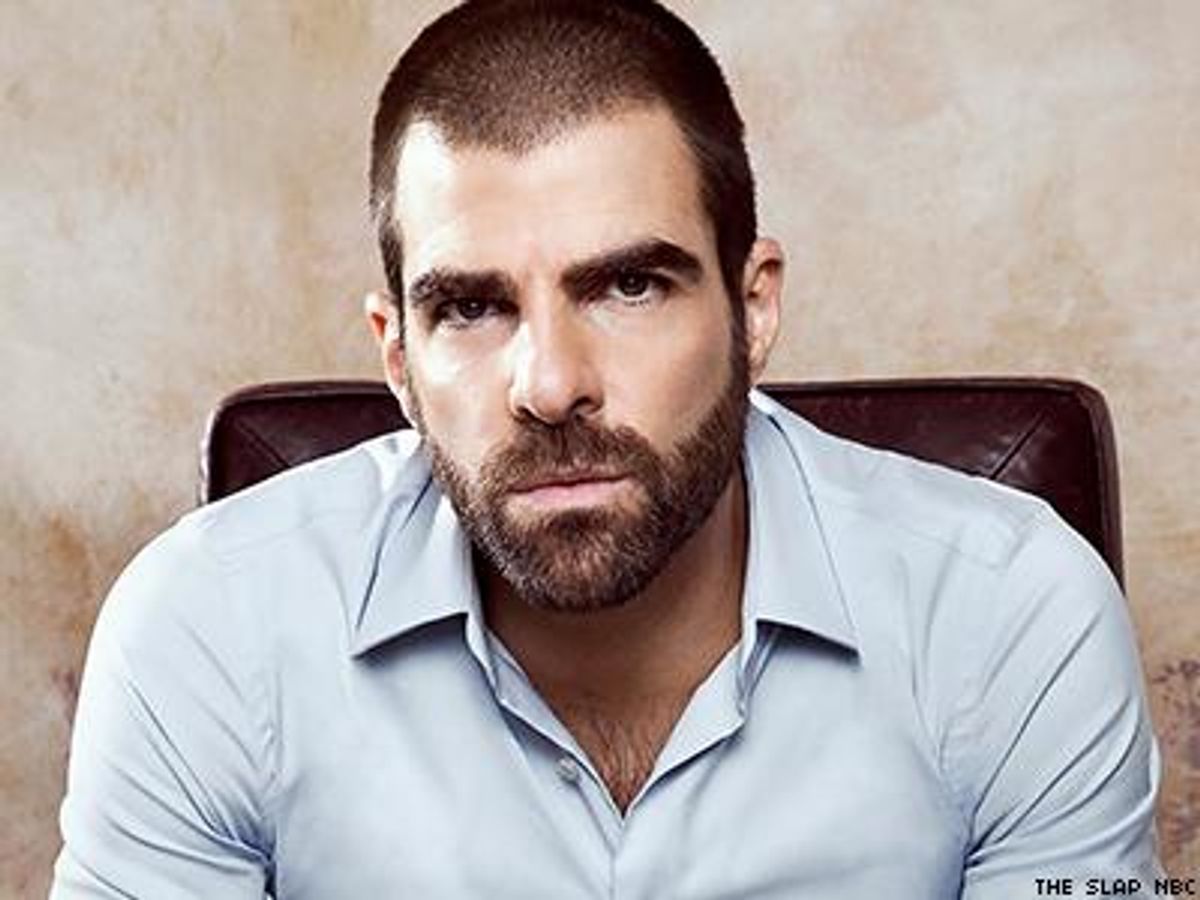
In a sense, Hollywood's portrayals of LGBT people help us gain equality, but what doesn't help are the attitudes of some people within the community.
March 03 2015 8:00 AM EST
November 17 2015 5:28 AM EST
By continuing to use our site, you agree to our Private Policy and Terms of Use.

In a sense, Hollywood's portrayals of LGBT people help us gain equality, but what doesn't help are the attitudes of some people within the community.
If you haven't caught NBC's miniseries The Slap yet, you should. It's a finely crafted tale, told from multiple perspectives, of how the lives of a family and their friends begin to unravel after a man slaps someone else's kid at a birthday party.
The man in question, a hot-headed straight alpha male with anger and control issues, is played with simmering intensity by Zachary Quinto. His performance is so compelling that you not only forget the actor is gay, you forget he's an actor.
Quinto came out publicly in 2011 after the suicide of gay teen Jamey Rodemeyer, stating, "Living a gay life without publicly acknowledging it is simply not enough to make any significant contribution to the immense work that lies ahead on the road to complete equality." He continues to be a vocal advocate for LGBT equality.
There's a lot at stake when any of us comes out. The stakes are that much higher when a public figure comes out, especially an actor such as Quinto, whose livelihood depends on the industry and the public accepting him in many different roles, including heterosexual ones.
There are two important ways that Hollywood advances the cause for LGBT equality. When prominent performers come out, they become positive role models for young people who are struggling with their own sexuality. When films and television shows depict the lives of LGBT characters, they can spread compassion and understanding to a mass audience.
But there are two common reactions among LGBT people that all too often work against these positive steps forward.
When performers such as Jim Parsons, Ricky Martin, or Wentworth Miller finally have the courage to make the career-risking move of coming out, the response from many gay people is not one of encouragement or congratulations, but of the catty "Surprise, surprise -- like we haven't known that for years" variety.
Having been through the difficult coming-out process themselves, why would gay people react to famous people coming out by mocking them? This response not only ignores the positive impact that out performers have on millions of young LGBT people, it reveals that above all else, you're just kind of a bitch.
High-profile films such as Boys Don't Cry, Brokeback Mountain, Milk, The Kids Are All Right, and The Imitation Game have immeasurably increased a worldwide audience's understanding of the challenges faced by LGBT people.
Yet many gay people ignore the value of those stories being told, and focus instead on complaints that queer characters are often played by straight actors. This complaint overlooks the reality of how films get made and what it is that actors do.
Before any film gets made, someone has to convince a studio and/or private investors to spend millions of dollars on the project. Those who agree to fund the film understandably hope to make a return on their investment. The most common way to ensure that a film reaches its audience is to cast the most high-profile actors possible. Today, most of those high-profile actors happen to be straight.
Would The Kids Are All Right still be a good film had it starred out actors Cynthia Nixon and Sarah Paulson? Sure. Would it have grossed nearly $21 million and earned four Oscar nominations had it not starred Annette Bening and Julianne Moore? Probably not. Without major stars in the leading roles, the film would probably not have been made at all.
If Heath Ledger and Jake Gyllenhaal had not starred in Brokeback Mountain, or Sean Penn had not starred in Milk, it's highly unlikely that either film would have earned its eight Oscar nominations -- or have been made at all. Had neither film been made, millions of people would never know that gay cowboys exist or that there once was a man named Harvey Milk.
The argument that straight actors shouldn't play gay roles is as ridiculous as the idea that gay actors shouldn't play straight roles. The job of the actor is to play someone who they are not -- and the finest actors thrive on the challenge of playing characters who are most different from themselves.
For evidence of this, you need look no further than Zachary Quinto's chilling performance in The Slap.
ADAM SANDEL is an arts journalist, screenwriter, and playwright who lives in San Francisco. He has contributed to the Bay Area Reporter, Santa Cruz Sentinel, Los Angeles Times, dot429.com,andStartOut.com. He teaches literature, critical thinking, and mythology & folklore at De Anza College.
Want more breaking equality news & trending entertainment stories?
Check out our NEW 24/7 streaming service: the Advocate Channel!
Download the Advocate Channel App for your mobile phone and your favorite streaming device!
